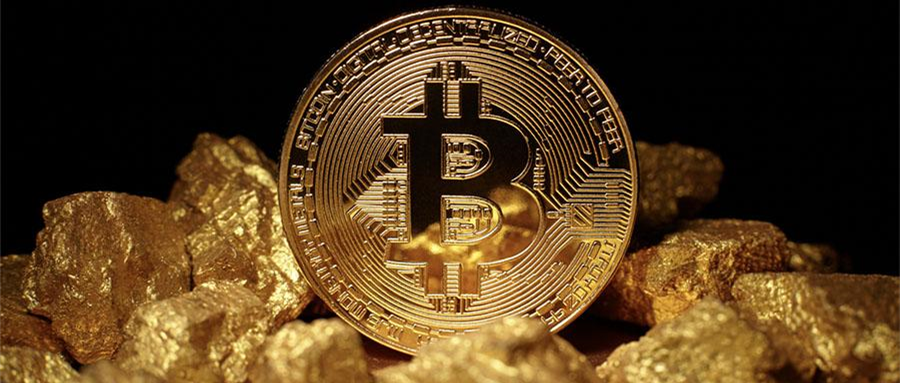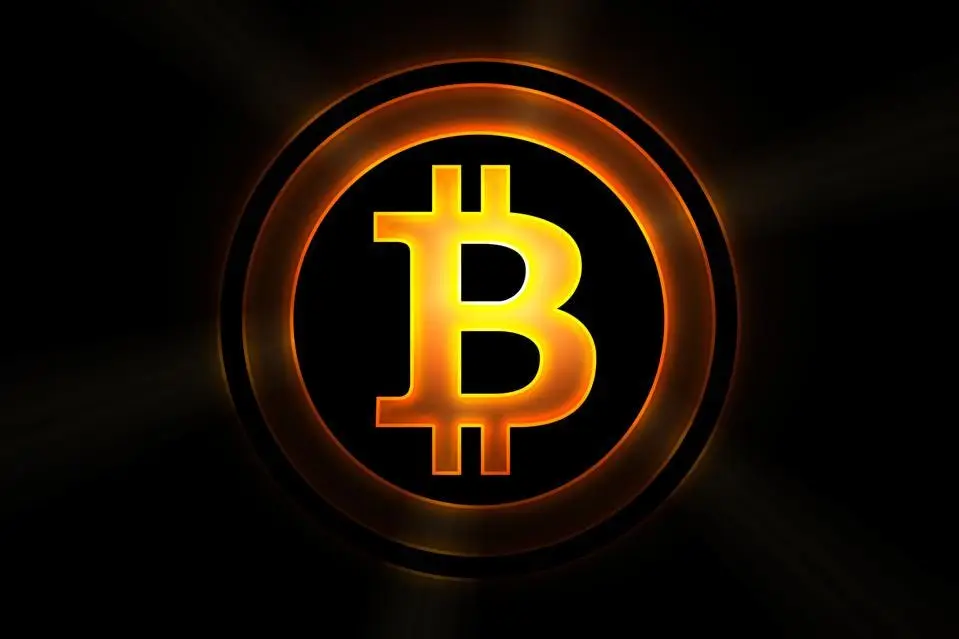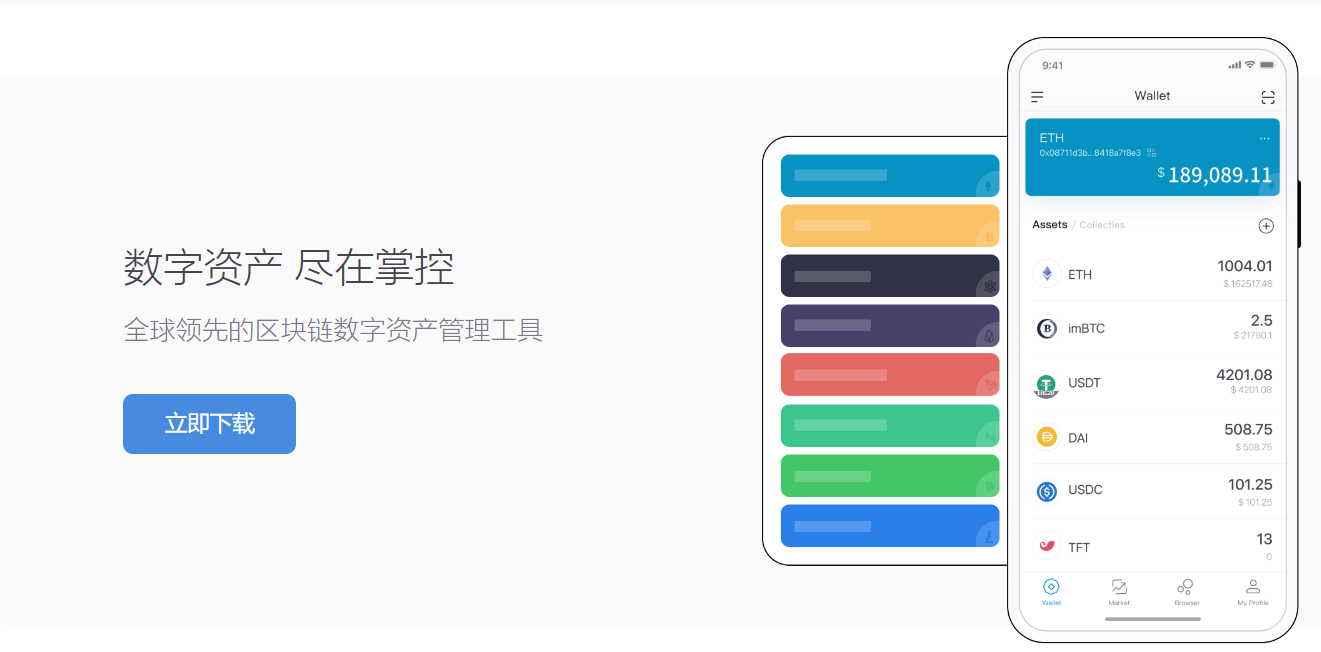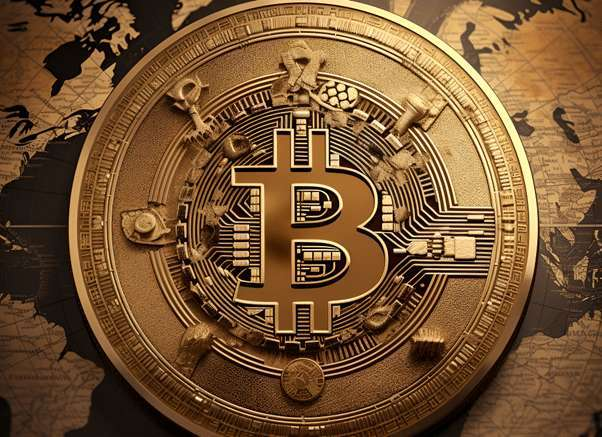Bitcoin and gold are complementary investments
Bitcoin and gold are complementary investments
-- more -->In many areas of our lives, we tend to take a zero-sum approach to decision making. What is good for one is, in proportion, bad for the other. Heads I win, tails you lose.

But in today’s complex and multifaceted investment world, nothing is single. The vast majority of decisions are in fact non-zero-sum, especially when we consider the trillions of dollars that make up global capital markets.
When it comes to cryptocurrencies and gold, the popular argument is that the former has stolen the spotlight from the latter, and that the growth of cryptocurrencies is gold’s loss. Again, simply thinking about the irrationality of one or the other has painful lessons for money. A prudent portfolio considers the maximum return for the lowest level of volatility. Like gold and cryptocurrencies, they both play complementary roles as stores of value against a backdrop of global uncertainty and looming inflation.
The market value of gold is estimated to exceed $11 trillion, reflecting its 2,500 years of leadership as a globally recognized medium of exchange and value. Bitcoin, by comparison, has a market value of about $1 trillion. Even the amount of physical gold held by central banks and investors is several times the current market value of Bitcoin. In 2020, average daily trading volume in gold was $125 billion, about 30 times the average daily spot trading volume in bitcoin of $4 billion. Nonetheless, the markets for both assets are highly liquid, which means there is plenty of room for both cryptocurrencies and gold to grow.
Therefore, rather than viewing cryptocurrencies and gold as competitors, it is better to view cryptocurrencies as legitimate new generation or derivatives with certain common characteristics. They all have low correlations with other asset families, are sensitive to inflation and can be highly diversified, providing an alternative to statutory bonds. Gold is a reliable, ancient, safe store of value, while Bitcoin is a new generation of growth and evolution that responds quickly but is not tested by time.
As investors in the United States jump on the cryptocurrency bandwagon, it may give the impression that gold is obsolete. But in the rest of the world, people who have long been accustomed to buying gold are only now considering cryptocurrencies.
Investors should be careful that investing in cryptocurrencies at the wrong time can quickly lead to serious losses. Anything that can appreciate at an unimaginable rate is likely to be vulnerable to significant corrections. Nothing is reliable. While cryptocurrencies are popular in North America and some other countries, they are effectively banned in China and are not popular in South Korea.
As a believer in gold and cryptocurrencies (especially DEFI), I can imagine gold regaining its place in North American portfolios. But that hasn’t stopped investors from diversifying into other asset classes, such as cryptocurrencies. There are signs of inflation, far more serious than the Fed would have you believe. As the government continues to print money, inflation will continue to rise. That means the price of gold, bitcoin, ethereum, and DEFI will all benefit.
Peter Schiff, former chief economist and strategist at Euro Pacific Capital, is flawed in my view. He argues that cryptocurrencies are not money and investing in them is reckless. There is no doubt that the value of anything lies in what you are willing to pay for it. The fate of any currency, digital or otherwise, is in the hands of the financial institutions and credit card companies that realize its relevance.
With the development of the Defi protocol based on Ethereum and Bitcoin, you can’t say these digital entities don’t have value. Defi alone is pushing the value of cryptocurrencies to match the value of all traditional financial markets.
Investment psychology has shown that there is little overlap between rational and rational behavior. People might think bitcoin is worthless, but it’s not. There are very savvy institutional investors and legendary macro investors who believe that cryptocurrency is the future because it is creating a cryptocurrency economy that can operate without a government monopoly.
You can think of it as Facebook 2.0 or email 2.0, which in the mid-1990s barely existed. E-mail is a new novelty that few people appreciate; No one expects email to become legal tender, and no one believes the Internet is secure. However, look at where we are today. Things are changing before we know it, which makes the concept of cryptocurrencies and the destabilizing DEFI protocol more credible.
The benefits of cryptocurrencies, DEFI, and blockchain technology are enormous, and we should not underestimate their potential. These agreements have significant advantages over gold and can be untraceable.
If we foresee that gold and cryptocurrencies will have a place in the future, I expect they will be correlated over time. If Bitcoin can go to $80,000 to $100,000 in the short to medium term and gold to $3,500 to $5,000, people are likely to invest in both. The DEFI protocol derived from Ethereum, Bitcoin, and other blockchains could be worth hundreds of thousands of times more.
Cryptocurrencies are unlikely to replace gold. They are two sides of the same coin, an older person and a younger person, each of whom can benefit from the experience and perspective of the other.




